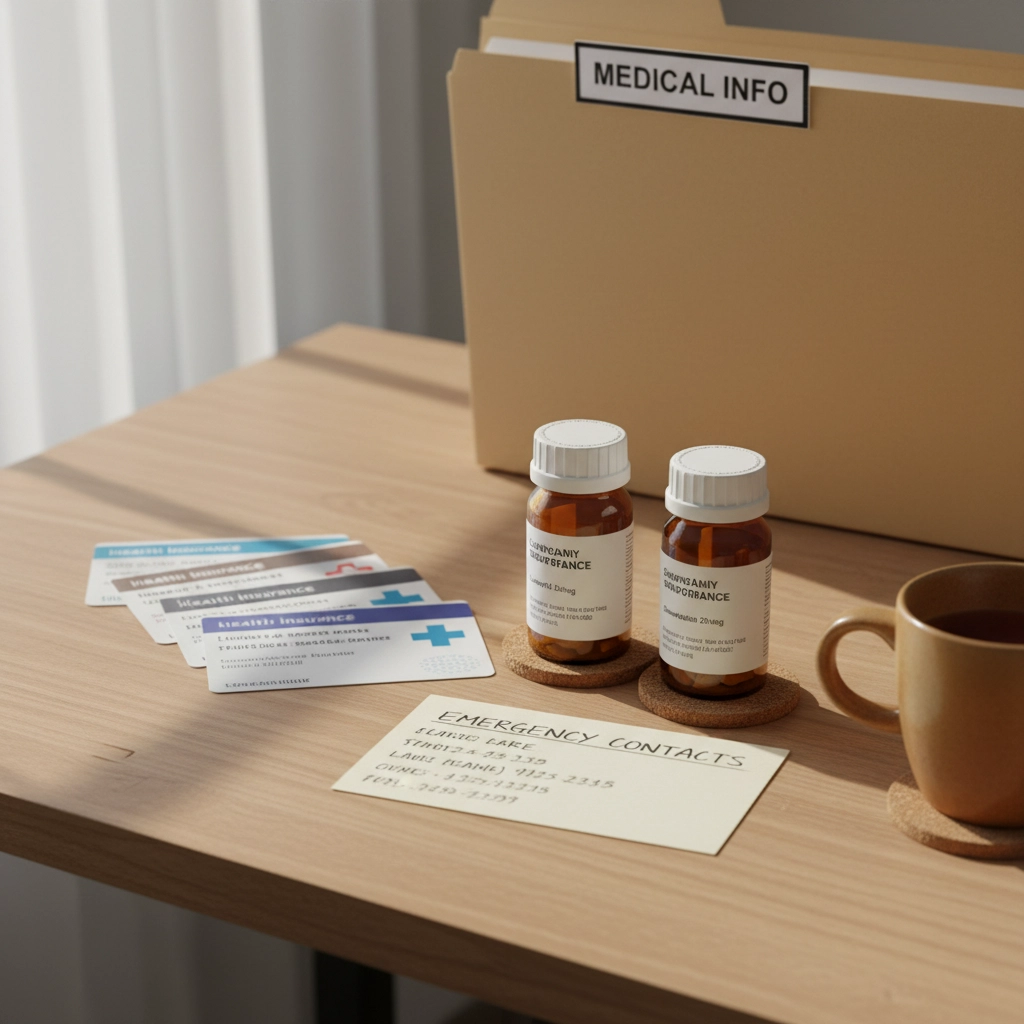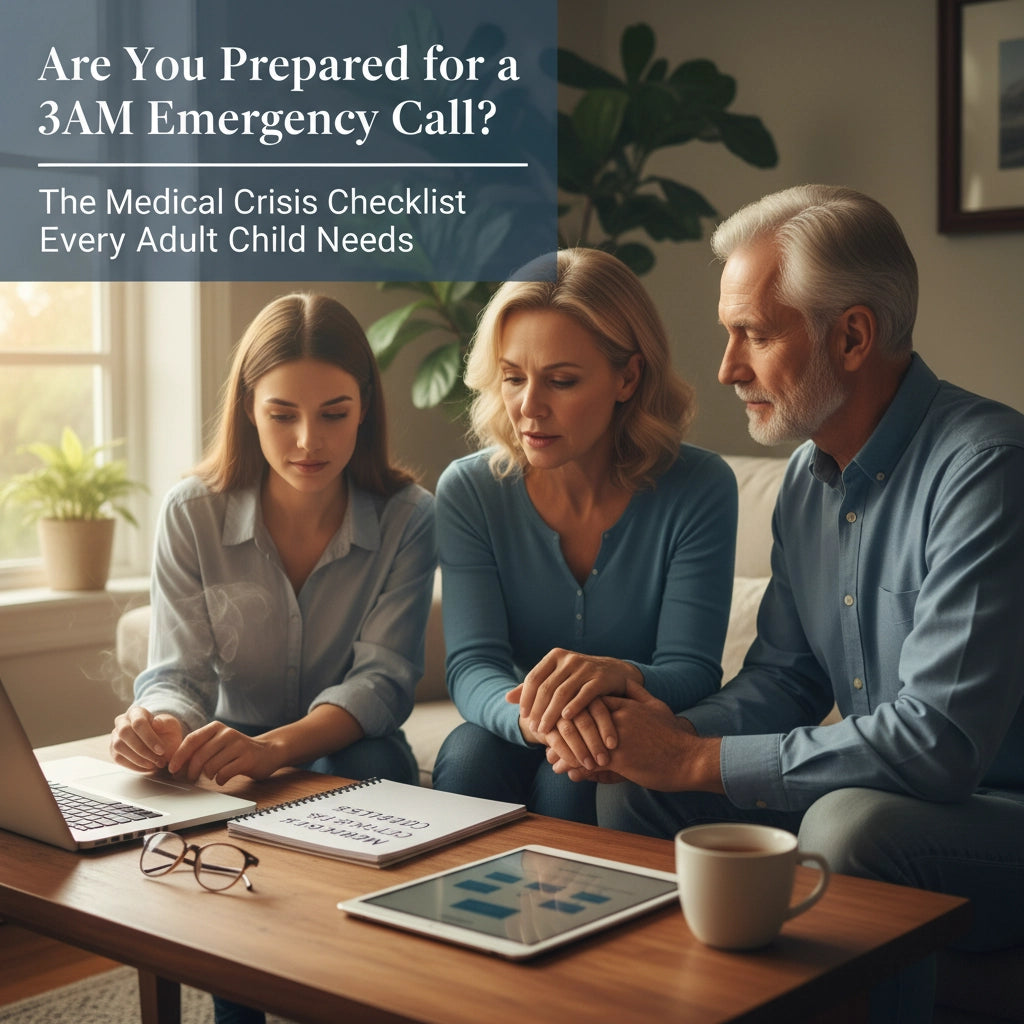That heart-stopping 3AM ring. The hospital calling about Mom or Dad. In that moment, being prepared isn't just helpful: it's everything. Here's your gentle guide to readiness, so you can focus on what matters most: being there for your loved one.
Essential Information to Keep Ready
Consider gathering these basics before you need them:
• Complete medication list with dosages, prescribing doctors, and pharmacy info
• Medical history summary including surgeries, chronic conditions, and allergies
• Emergency contact sheet with all doctors, specialists, and family members
• Insurance cards and Medicare information (keep photos on your phone too)
• Legal documents including power of attorney and healthcare directives

The 3AM Phone Grab List
You may want to create a simple checklist near your phone:
• Ask specific questions: What happened? Which hospital? What do they need from you?
• Get the doctor's name and direct hospital phone number
• Write down visiting hours and parking instructions
• Ask if they need you to bring anything specific (medications, insurance info, etc.)
• Find out if other family members have been contacted
Your Emergency Go-Bag Essentials
Consider keeping these items ready in a small bag or folder:
• Copies of all important documents in a waterproof folder • List of current medications updated every 3 months • Phone charger and portable battery (hospitals can be long stays) • Comfort items like a small blanket, snacks, or reading glasses • Cash for parking and vending machines

Recognizing When It's Really Serious
You may want to ask your physician about these warning signs that need immediate attention:
• Chest pain with breathing difficulty, sweating, or nausea • Stroke symptoms: sudden confusion, face drooping, arm weakness, speech problems • Severe allergic reactions: difficulty breathing, face/throat swelling • Falls with head injury or suspected broken bones • Breathing problems that are getting worse quickly
Communication During the Crisis
Consider these gentle approaches when coordinating care:
• Designate one family spokesperson to communicate with medical staff • Create a group text to keep everyone updated at once • Ask permission before sharing medical information with others • Take notes during doctor conversations (stress makes us forget details) • Request interpreters if language barriers exist

Legal Preparedness That Can't Wait
You may want to discuss these important steps with your loved ones:
• Power of attorney documents must be signed before emergencies happen • Healthcare directives should reflect current wishes, not decade-old preferences • HIPAA authorization forms allow hospitals to talk to you about their care • Emergency contact updates at all doctor offices and hospitals • Medical decision discussions about preferences before crisis moments
Making This Manageable
Rather than feeling overwhelmed, consider starting small:
• This week: Gather medication lists and insurance information
• Next week: Scan important documents to your phone and cloud storage
• This month: Have gentle conversations about healthcare preferences
• Quarterly: Update all emergency information and contacts
You Don't Have to Figure This Out Alone
Planning for medical emergencies while caring for aging parents feels overwhelming: because it is. That's exactly why we created our Eldercare Bundle, which includes step-by-step checklists, document templates, and gentle guidance for exactly these situations.
The bundle includes emergency preparedness worksheets, legal document checklists, and communication templates that take the guesswork out of crisis planning. Because when that 3AM call comes, you'll have everything ready: and can focus entirely on being the loving, supportive family member you want to be.
Remember: You're not preparing for the worst: you're preparing to be your best when your family needs you most. That's what loving caregivers do. ❤️
Disclaimer: These are general recommendations intended to support caregivers. Please bring any checklist to appointments and speak directly with your financial advisor, estate planning attorney, and medical professionals. Get their guidance for your family’s specific situation.

